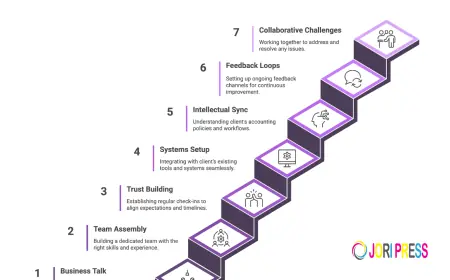ISO Certification 27001: Safeguarding Information Security
Introduction
In today’s digital world, where data breaches and cyber threats are on the rise, organizations must prioritize the security of sensitive information. One of the most recognized standards for ensuring information security is ISO certification 27001. This international standard outlines the requirements for establishing, implementing, operating, monitoring, reviewing, and improving an Information Security Management System (ISMS). Achieving ISO 27001 certification not only ensures that an organization is taking appropriate measures to protect its data but also strengthens its reputation as a trusted and secure entity. This article discusses the importance of ISO 27001, its benefits, and the steps businesses can take to obtain certification.
What is ISO Certification 27001?
ISO certification 27001 is the global standard for managing information security within an organization. It provides a framework for identifying and addressing security risks to the confidentiality, integrity, and availability of information. The certification focuses on the establishment of an ISMS, which is designed to protect sensitive data from unauthorized access, loss, or corruption. ISO 27001 applies to all types of organizations, regardless of their size or industry, and is particularly vital for businesses that handle large amounts of confidential or personal data, such as financial institutions, healthcare providers, and tech companies.
The Benefits of ISO 27001 Certification
The benefits of obtaining ISO certification 27001 are far-reaching. First, it enhances data security by implementing best practices to prevent cyberattacks, data breaches, and theft. It also helps organizations build trust with clients, partners, and stakeholders by demonstrating a commitment to protecting sensitive information. ISO 27001 certification can improve operational efficiency by identifying vulnerabilities and streamlining processes to mitigate risks. Additionally, compliance with ISO 27001 often helps meet legal and regulatory requirements related to data protection, which reduces the risk of fines or legal actions. Lastly, achieving certification boosts a company’s reputation, positioning it as a secure and reliable business in the market.
How to Achieve ISO 27001 Certification
To obtain ISO certification 27001, organizations must follow a structured process. First, they need to assess their current information security practices and identify potential risks. This is followed by defining an ISMS, which includes setting clear objectives, establishing policies, and implementing security controls. Staff training and awareness are crucial to ensure that everyone understands their roles in safeguarding information. After the system is in place, an internal audit must be conducted to evaluate its effectiveness, followed by an external audit from an accredited certification body. If the organization meets all requirements, it will be awarded the ISO 27001 certification, which must be maintained through regular reviews and surveillance audits.
Conclusion
As the frequency and sophistication of cyber threats continue to rise, ISO certification 27001 has become a critical standard for organizations seeking to protect their information assets. By implementing an ISMS and achieving certification, companies can significantly reduce the risk of data breaches, enhance their security posture, and demonstrate their commitment to data protection. In a world where trust and security are paramount, ISO 27001 not only offers a competitive edge but also ensures long-term business sustainability and resilience against emerging security threats.
What's Your Reaction?
 Like
0
Like
0
 Dislike
0
Dislike
0
 Love
0
Love
0
 Funny
0
Funny
0
 Angry
0
Angry
0
 Sad
0
Sad
0
 Wow
0
Wow
0



















































